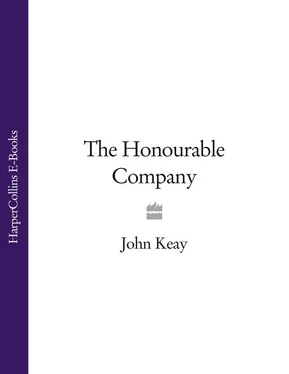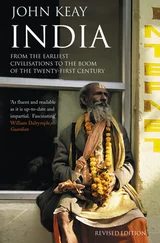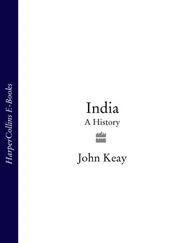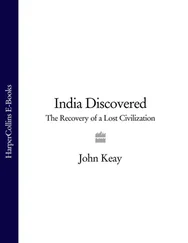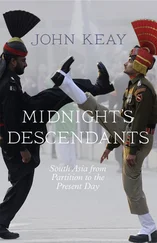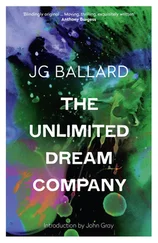The arrival of ‘unrulie’ English hordes from the wrecked Ascension contributed to his discomfiture. In Surat they had already disgraced themselves ‘with palmita drinke (toddy) and raisin wine’. According to Finch they ‘made themselves beasts and soe fell to lewd women that in shorte time manie fell sicke’. Worse still, one Thomas Tucker, perhaps tired of singing for his supper, butchered a calf which Finch rightly described as ‘a slaughter more than murther in India’. Local Brahmins organized a lynch mob and Tucker was saved only when the English themselves were seen to whip him into insensibility. To Finch’s immense relief the officers and men of the Ascension at last set off for Agra. Many never arrived but amongst those who did was the factor, John Jourdain, who was to figure so prominently at Bantam.
Hawkins, Jourdain reported, was ‘in some disgrace with the kinge’. The factor had taken an instant dislike to the Captain and, not without gloating, he proceeded to list the reasons for Hawkins’s disgrace. Amongst them occurs the oft-quoted reference to Hawkins’s drunkenness. According to Jourdain he had been publicly reprimanded for appearing at court after ‘filling his head with stronge drinke’. Perhaps he had. But Jehangir was not noted for his abstinence and Hawkins mentions having passed many paralytic hours in the Emperor’s company. Even if the Emperor had undergone some conscience-stricken reformation it seems unlikely that he would have objected to Hawkins drinking in his own home. More probably this was simply another instance of the Captain’s many enemies trying to engineer his disgrace.
After five wasted months Jourdain and most of his followers returned towards Surat in the hopes of being rescued by another English vessel. Hawkins remained at Agra and briefly his fortunes revived. ‘Againe I was afloat’, he writes. Jehangir seemed disposed to make Mukarrab Khan settle with him and to grant the cherished farman for an English factory. Hawkins also had high hopes of receiving back payment of his promised salary. Then once again his enemies rallied and the Portuguese outbid him for the Emperor’s favour. He applied for leave to depart from Agra and, instead of being detained with fair promises as expected, he found himself dismissed. With Mrs Hawkins, her few jewels and her many relatives, he left Agra in November 1611. His plan was to head for Goa and with the help of the Portuguese, only too pleased to hasten his retreat, to sail from there to Europe. In the event he changed his plans and headed for Surat. An English vessel, indeed a most impressive fleet, was off the ‘bar’ and its commander was adopting a radically different approach to both Moghul officialdom and the Portuguese.
While English attempts to establish themselves at Surat were getting nowhere very slowly, events on the other side of the Arabian Sea had overtaken them. Although Keeling and Hawkins had failed to reach the Red Sea ports the Ascension, before running aground on the coast of Gujarat, had made good this omission. By chance she had also discovered the Seychelle Islands. ‘They seemed to us’, opined the ship’s boatswain, ‘an earthly paradise.’ But they were as yet uninhabited save for giant turtles and even the most pie-eyed of factors could see no commercial potential for turtle flesh ‘because they did look so uglie before they were boyled’.
Aden, ‘that famous and stronge place’, could hardly compare with the Seychelles. ‘A most uncomfortable place’, thought Jourdain, ‘for within the walls there is not any green thing growing, onlie your delight must be in the cragged rocks and decayed houses.’ The city was still in ruins following its conquest by the Turks in 1538. Small quantities of gum arabic, frankincense and myrrh were obtainable but the main terminus for oceanic shipping was now round the coast at Mocha in the Red Sea itself.
While the Ascension made for Mocha through the straits of Bab-el-Mandeb, Jourdain, with the usual royal letter of introduction, journeyed inland to Sana’a, the capital. Yemen was a land of picturesque surprises; high passes gave way to fertile valleys in one of which he identified extensive plantations of what he called ‘cohoo. ‘The seeds of this cohoo is a great marchandise for it is carried to Grand Cairo and all other places of Turkey and the Indias.’ ‘Kahwa’ was the word used by the Arabs; in English it was sometimes rendered as ‘coughe’ and eventually ‘coffee’. Nowhere else in the world was it to be found and as yet there was no market for it in Europe. But by the 1660s coffee would become the staple export of the Red Sea ports.
At Sana’a Jourdain obtained permission to trade from the Turkish Pasha, or governor, and then proceeded on to Mocha. Thence a letter was sent via Cairo to London representing the potential of Mocha in highly favourable but misleading terms. In fact the town proved ‘unreasonable hott’; the Pasha’s permission was for the Ascension’s trade only, not for the establishment of a factory; and a profitable sale for the ship’s ballast, mostly iron, was lost through her commander ‘bursting out in anger saying that the merchants of Mocha mocked him to offer so little’.
But the Company knew nothing of this and in 1609, believing Hawkins favourably established in India and the Red Sea trade already wide open to them, the directors instructed the ships of their Sixth Voyage to concentrate on the Arabian Sea. After much deliberation James I had just granted the Company that new and enlarged charter; thanks largely to David Middleton’s success in the Spice Islands, confidence in the profitability of Eastern trade was growing; peers of the realm and ministers of state were willing to invest. To discredit the arguments of its critics and to capitalize on this spirit of optimism, it was vital that the Company be seen to be making the most of its eastern monopoly and to be doing its utmost for English exports. At £82,000 the subscription raised for this voyage was the highest yet. Two of its three ships – the wishfully named Trades Increase and the Peppercorn were brand new and the total tonnage for the voyage was second only to that of Lancaster’s fleet. English manufactures, mostly woollens, made up half the value of its trading stock. And Henry Middleton, now Sir Henry, was appointed commander. It was the sort of fleet of which a man of quality need not feel ashamed.
Having taken seven months over a voyage which took Keeling eighteen, all three ships were off the coast of Socotra by 18 October 1609. They ‘sheathed their pinis’ and learnt from the sultan of the island that the Ascension ‘had sold all her goods’ at Mocha. ‘This newes gave mee good content,’ noted Middleton. In expectation of doing as well if not better he headed for the Red Sea. The Peppercorn was left at Aden and on 13 November the other two ships came to rest off Mocha. In the case of the Trades Increase anchors were unnecessary. The enormous ship was in fact aground and had to be almost entirely unloaded before she could be refloated. This was contrary to the Company’s instructions which insisted that, where there was no factory, goods should never be landed until sold. Under the circumstances Middleton had little choice; but the landing of his cargo undoubtedly weakened his bargaining position and aroused the cupidity – and suspicions – of Mocha’s officials.
The Turkish official in charge of the port had the title of Aga and for two weeks the English could find no fault with the warmth of his welcome. They were given an extensive property, Middleton was honoured with a robe of crimson silk embroidered with silver thread, and every day presents arrived from the castle. On the evening of 28 November, records Middleton, ‘according to my wonted custom I caused stooles to be sett at the doore where myself, Master Femmel and Master Pemberton [the principal factors] sat to take the fresh aire’. The red sun slid, orb-like, into the Red Sea; the muezzin sounded from the city’s mosques; contentment reigned. An emissary from the Aga dropped by and Middleton sent his servant to fetch the interpreter. The man burbled on in Arabic. ‘As he was aboute to say somewhat else, my man returned in great feare telling us wee were all betrayed, for that the Turkes and my people were by the eares at the backe of the house.’
Читать дальше
